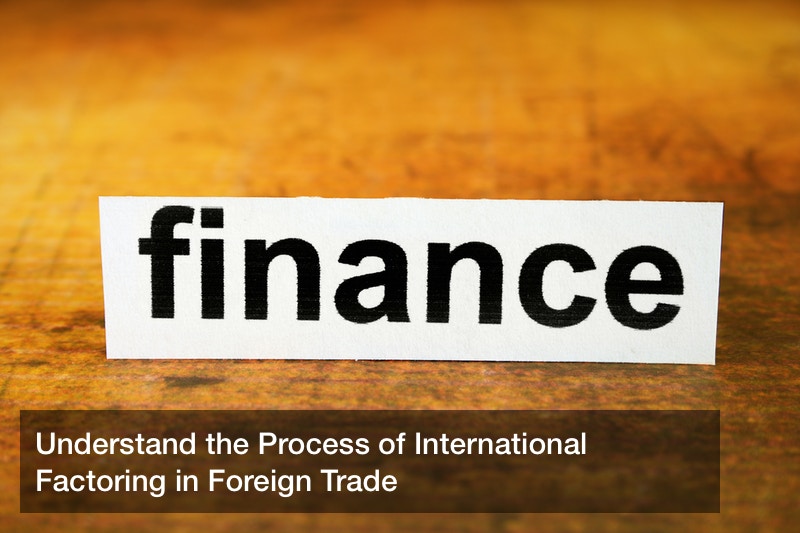
International factoring is a key service in the supply chain management of goods and services for both imports and exports. Companies engaging in oversee trading often face common challenges such as the demand to have an account trade and longer payment terms. It cuts across all sectors and unfortunately, both small, medium and large scale businesses experience similar demands. Often, payment will come much later after the invoice date.
There are two factors when it comes to international factoring. Export factors help to finance all exports and facilitate the collection of account receivables. Import factor, on the other hand, evaluates the buyer’s (importer) capacity to pay the dues in time while considering chances of default payment.
How does international invoice factoring services work?
Two parties are involved here, the buyer(importer) and the seller (exporter) or the supplier. The exporter sells the account receivables to a third-party factoring company, transferring all rights and interest that comes with it. An export order is issued upon importer requests for limit approval in the buyer importing the good or services. The supplier, in turn, reaches out to the import factor requesting the approval of the same.
Once the approval is confirmed by the importer factor, the exporter factor signals for the initiation of factoring agreement — between the factor and exporter. The supplier ships the goods to the importer alongside the factoring agreement to the export factor, who then verifies the relevant documents and honor payments as agreed between the two parties. A copy of the document will be shared with the import factor.
As agreed on the document, the import factor will collect payment on the due date and send it to the export factor who will compute the amount to deduct as per the invoice and send the balance to the exporter. That is basically how the international factoring process works. To some extent, the service serves both as export insurance for the exporter and an advance business capital to the importer.
The exporter seeks the services of a factor to guarantee the import price while the factor guarantees stable cash flow from the buyer to the seller.
Types of International Factoring Associations
The four types of international factoring include: Two Factor System, Single Factoring System, Direct Export Factoring and Direct Import Factoring.
- Two Factor System Factoring financing process under this system involves four parties; buyer, seller, buyer’s factor and seller’s factors in their respective countries. The two-factor system is the most common type of international factoring involving two different countries in an import and export transaction.
- Single Factoring System is an agreement by the exporter factoring company and the importer factoring company to use one factoring company to facilitate the entire process.
- Direct Export Factoring system use the export factor as the factoring company to handle all the functions. This system is preferred especially when looking to cut down the cost of factoring transactions.
- Direct Import Factoring system is similar to direct export factoring but now the importer factors assumes all the functions.
In all of these systems, factors remit a certain percentage of commission and issue the remaining balance to the exporter. Some factors will also offer customized factoring services depending on exporter’s or importer’s needs and the laws of the land they are operating in.
Benefits International Factoring
In addition to significantly reducing your credit risk, international factoring has other advantages:
- Guarantees exporters of import price
- International market information and new foreign opportunities
- Protection against bad debts from insolvent and bankrupt foreign customers
- Overcome language barrier and customs
- Advance business capital to maintain cash flow
- Less paperwork and documentation; digital transaction
To protect the parties involved in international factoring, a special factoring monitoring body named Factors Chain International (FCI) is tasked to set rules and address disputes if any arises. The set rules govern how leading factoring companies should conduct themselves in providing invoice funding services.
